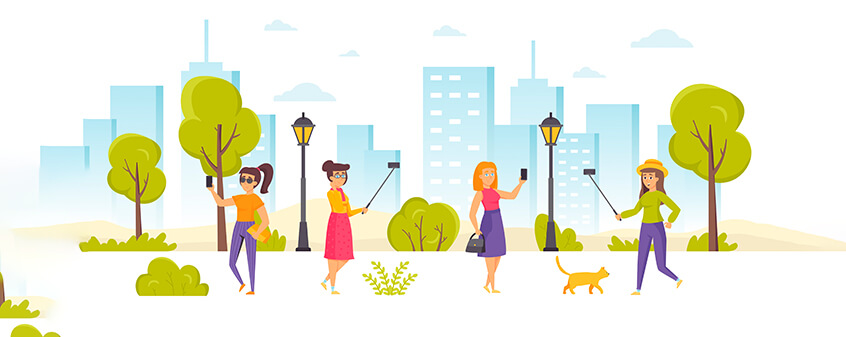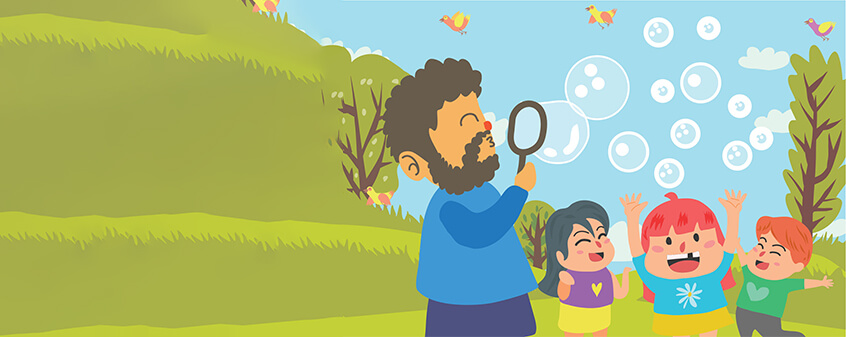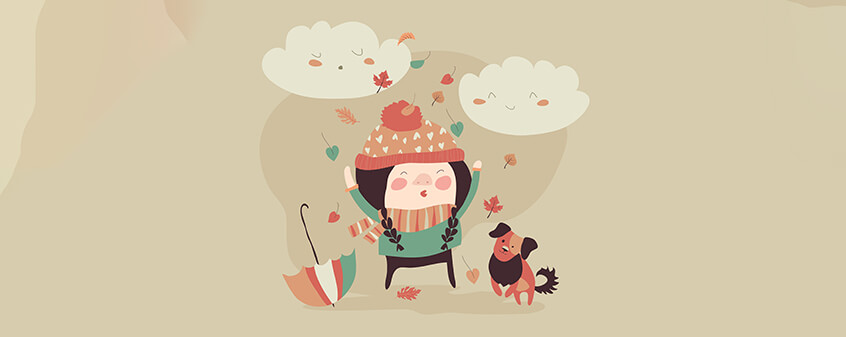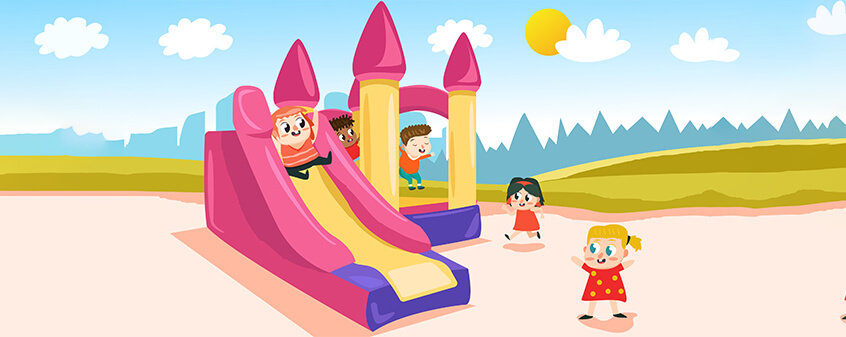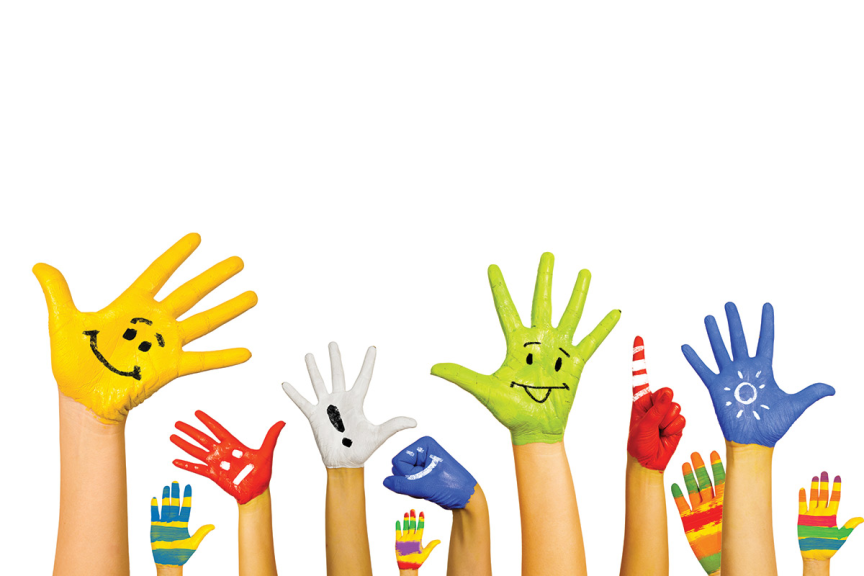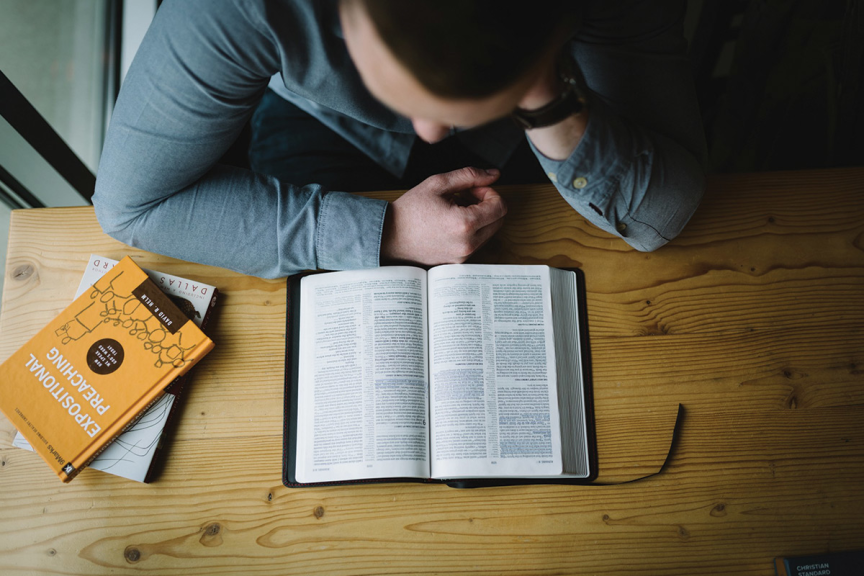We need to show our children that the way we grow, change, and develop through life are strongly infl uenced by the choices we make. Our children need to have a strong sense of ‘the kind of me I’d like to be’.
When I was growing up my mantra was ‘to be the best teacher’, then my mantra transformed into ‘wanting to redefine and transform education in India’. I encourage all children to have a personal mantra that is authentic but can evolve when required. This personal mantra acts as a roadmap to where they would want to go. To make it a commitment to themselves, I ask them to write the mantra down. The Beatles, when they were just a garage band had a mantra to be ‘Bigger than Elvis’. I often talk to children about not following the herd and succumbing to peer pressure. When one follows the pack, one is rarely true to oneself. We need to parent our children to recognize and celebrate the unique beauty within themselves and others so that they become RESPONSE-ABLE—able to consciously and mindfully choose behaviours prompted by a deep sense of being connected with all of life rather than those prompted by a sense of self as being separate. We need to encourage our children to see the ‘oneness’ of the universe and to understand the interdependency of all living things.
Empathy
At the age of 12, I cut myself with a kitchen knife. I naturally went to my older 16-year-old brother with my blood splattered hands. He just shrugged and went about doing whatever he was doing. My younger brother, who was strolling by, rushed to my assistance, got help, and sat by my side, crying at the pain he knew I was feeling. Interestingly, when my older brother was growing up, my mother was more stressed with work and spent less time with him. She also felt more ‘emotionally ready’ for motherhood while having my younger brother. My older brother grew up largely in the care of a servant, while my younger brother grew up in the care of our mother. I think that has a lot to do with how they turned out. Dr Lipton, in his book Biology of Belief, maintains that genes play a role in who we are but so do our experiences, which encourage some genes to turn on and others to remain dormant. So, two brothers with perhaps a similar genetic code can be as different as chalk and cheese behaviourally.
This made me think. Can empathy be learnt? Should it be taught in schools and be made just as important a part of the curriculum as math and science? There is another vital reason we should teach our children to be empathetic. Because of science. Happiness and emotions associated with doing a good deed creates an emotional reaction in our bodies and brain—increasing the production of dopamine. At our schools we link this with our curriculum. For example, in Grade II when children learn about ‘senses’, they visit a school for the blind. They learn how Braille works and are involved in raising money (through their own labour) and purchasing Braille kits for children. Children get something out of it—something that lasts longer than the great feelings they experience during the act of giving.
Doing ‘good’ improves a child’s self-esteem, and generally makes a child a well-rounded person. But there is also a more tangible, physical benefit to doing good. Doing good can actually improve one’s health. Here’s how.
It improves your immune system
A Harvard study showed that thinking about generosity, whether your own or someone else’s, boosted the antibody levels in the participant’s saliva. Researchers made students watch a video of Mother Teresa’s work, and they found the antibody levels of the students skyrocket. The increased levels continued for up to an hour after the survey was conducted.
Another study found that doing something good for someone else releases the same endorphins that are released during exercise. These endorphins are linked to improved immune and nervous systems. It can help ease depression Doing good deeds helps diminish depression. It obviously helps take your mind off your own situation and puts your problems into perspective, however it also helps on a chemical level. Doing good releases dopamine—the feel-good chemical that gets released when we do something pleasurable. According to Dr David Hamilton, author of Why Kindness is Good for You, dopamine makes us happier so that we will engage in the behaviour that initially released it again. It increases the length and quality of life Several studies have found that people who regularly volunteer to help others regularly have fewer occurrences of heart disease than people who never volunteer. These people also generally live longer.
Moreover, people with chronic pain reported having less pain, improved functionality, and less depression when they reached out to other people suffering with similar pains. Just the act of smiling releases dopamine in the one who smiles and the one who is the recipient of the smile.

